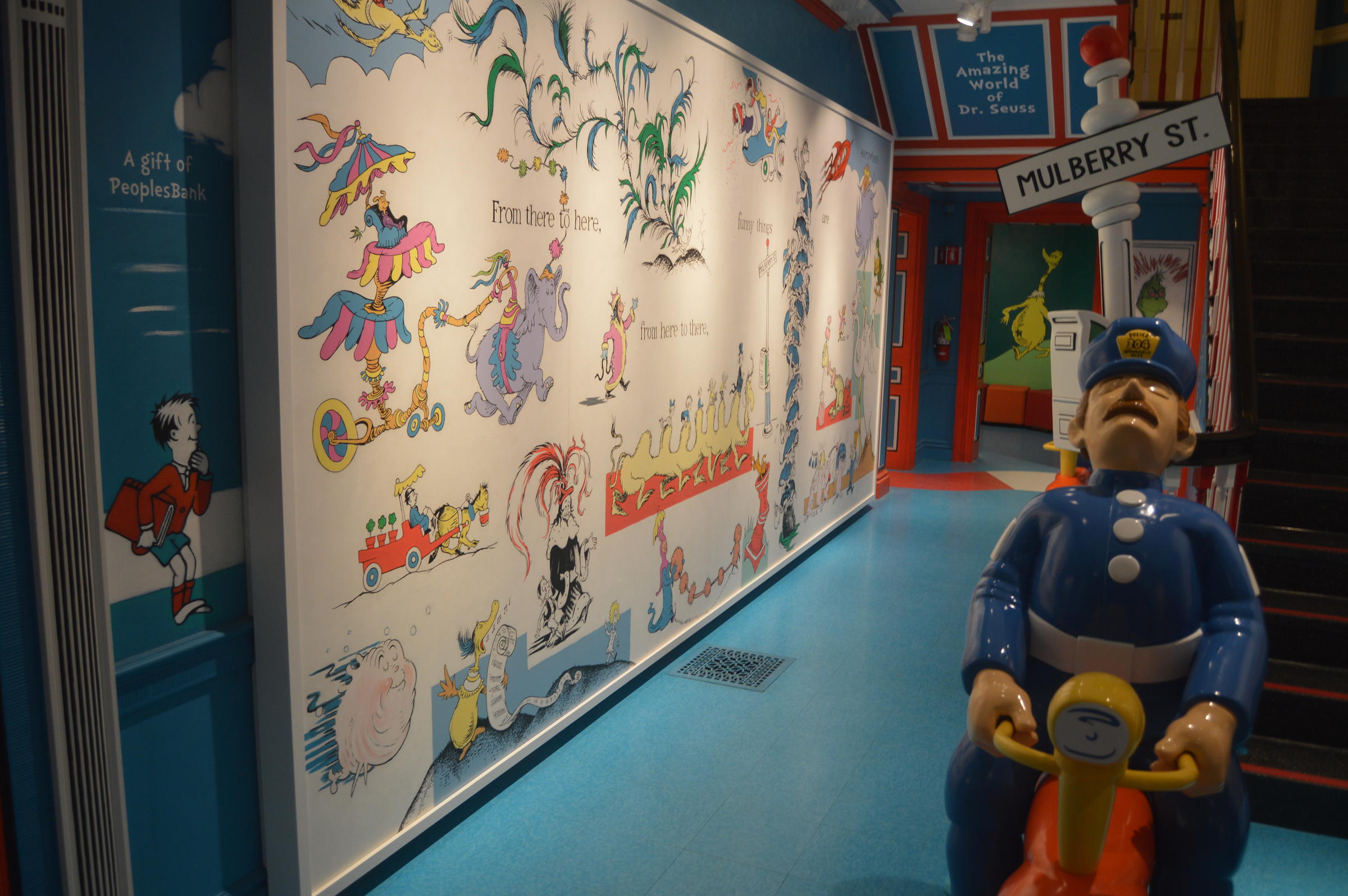Episode 163: The History Of The GOP And Climate; Growing A Better Lunch
The man known as Dr. Seuss grew up in New England…drawing inspiration from the local zoo and his German roots. This week on NEXT, from the New England News Collaborative, tall tales from Springfield’s famous son. And how another famous family, the Sununus, shaped the climate debate. In this episode, we’ll trace the history of the GOP and climate. We’ll also look at what kids are—and aren’t—eating for lunch at school.
Tracing a Family, And Party’s, Changing Climate Attitudes
On September 23 in New York, world officials meet at the UN for the Climate Action Summit. Leading up to that event, nearly 200 media organizations and shows like ours have committed to coverage of the global climate crisis.
This sort of coverage is a regular feature of NEXT, and we got thinking about a conversation we had earlier this year about the roots of climate change skepticism in the US. And the Republican Party’s changing attitudes toward climate. . .which can be traced to a powerful political machine – the Sununu family of New Hampshire.
In a special episode of their Outside/In podcast, NHPR’s Sam Evans-Brown and environmental reporter Annie Ropeik dug into this history for us.
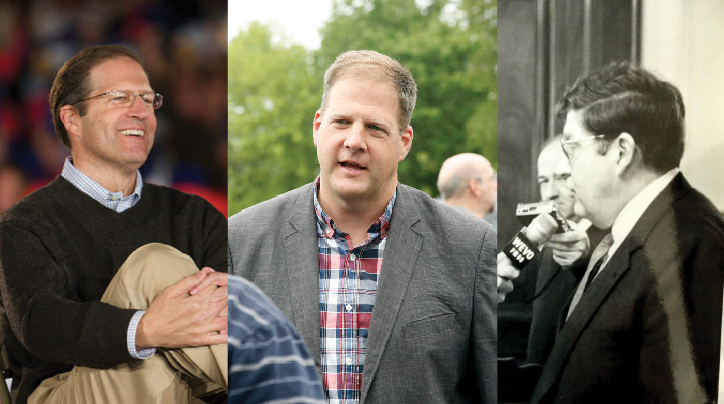
Former Sen. John E. Sununu and New Hampshire Governor Chris Sununu have followed the political footsteps of their father, former Gov. John H. Sununu. Photo by Casey McDermott for NHPR
The push for more renewable energy projects has taken off in New England’s relatively progressive political environment, in which climate change is seen as a real problem that needs to be solved, in a bi-partisan way. But, did you know that the roots of climate change skepticism within the Republican party can be traced to our region, too?
On a recent episode of NHPR’s Outside/In podcast, host Sam Evans-Brown and environmental reporter Annie Ropeik take a look at what we can learn about the Republican party’s changing attitudes towards climate change, from the powerful Sununu family of New Hampshire.
Listen to the full episode, “The Family Business”.
New Documentary Details Attempt to Change School Lunches
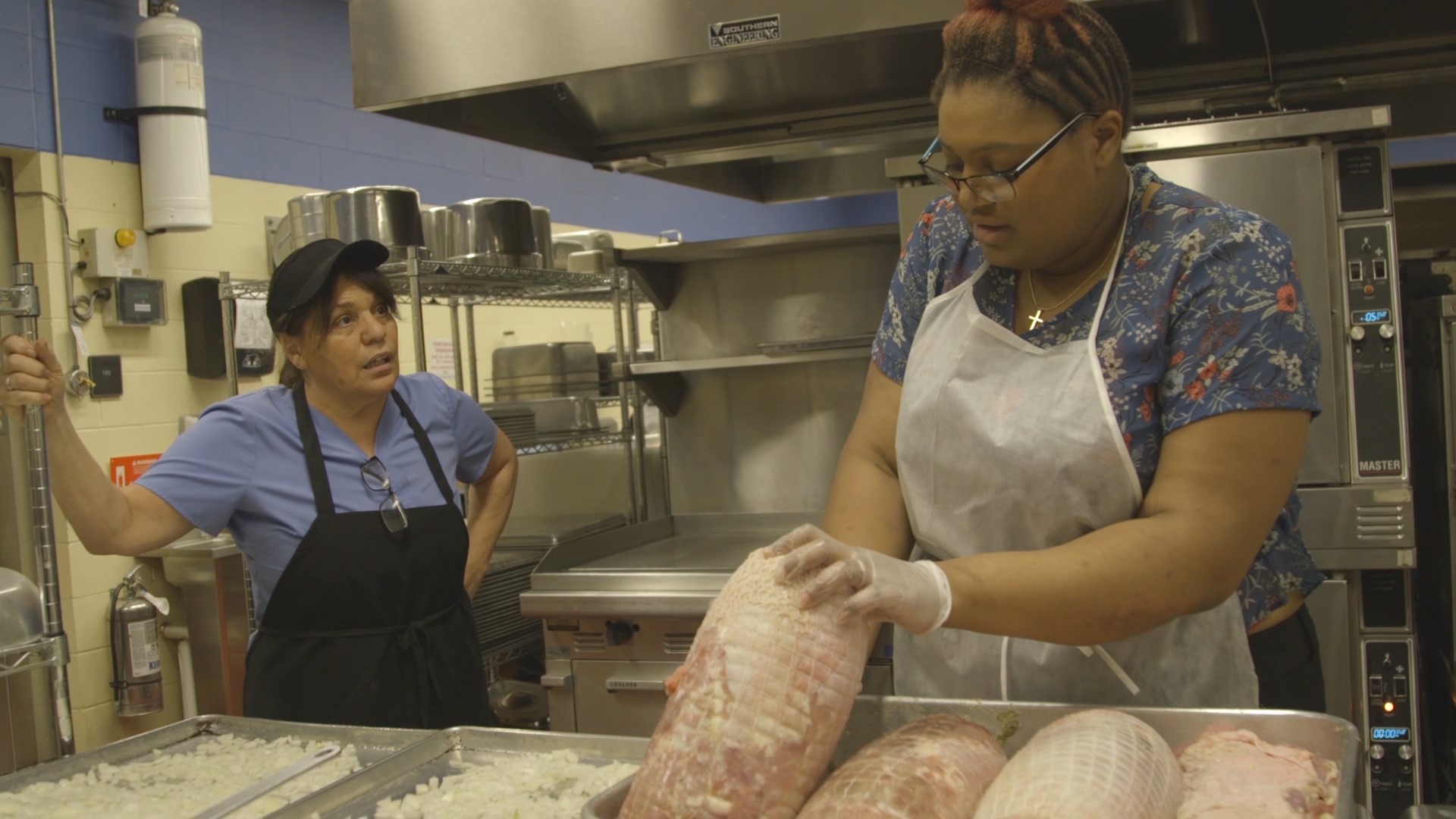
Cafeteria staff works overtime cooking raw turkeys. Photo courtesy of Fiona Turner from the new documentary, “Eat Up”
You know those airplane meals that arrive in those pre-frozen packages? Heated up in the back of the plane, with condensation leaking down from the plastic lid? It’s not too appetizing. But for years, that’s what many kids in schools around the country are getting for lunch every day. And for many of them, that means not eating all day.
A new documentary called “Eat Up” follows Jill Shah, a Boston-based entrepreneur, and philanthropist, as she set out to change the lunches in Boston’s Public Schools, working to bring fresh, nutritious food to students around the city. Fiona Turner directed the documentary, and they both joined us in the studio.
The film was shown at Boston’s Museum of Fine Arts in June.
Meet the Women Changing Connecticut’s Food System
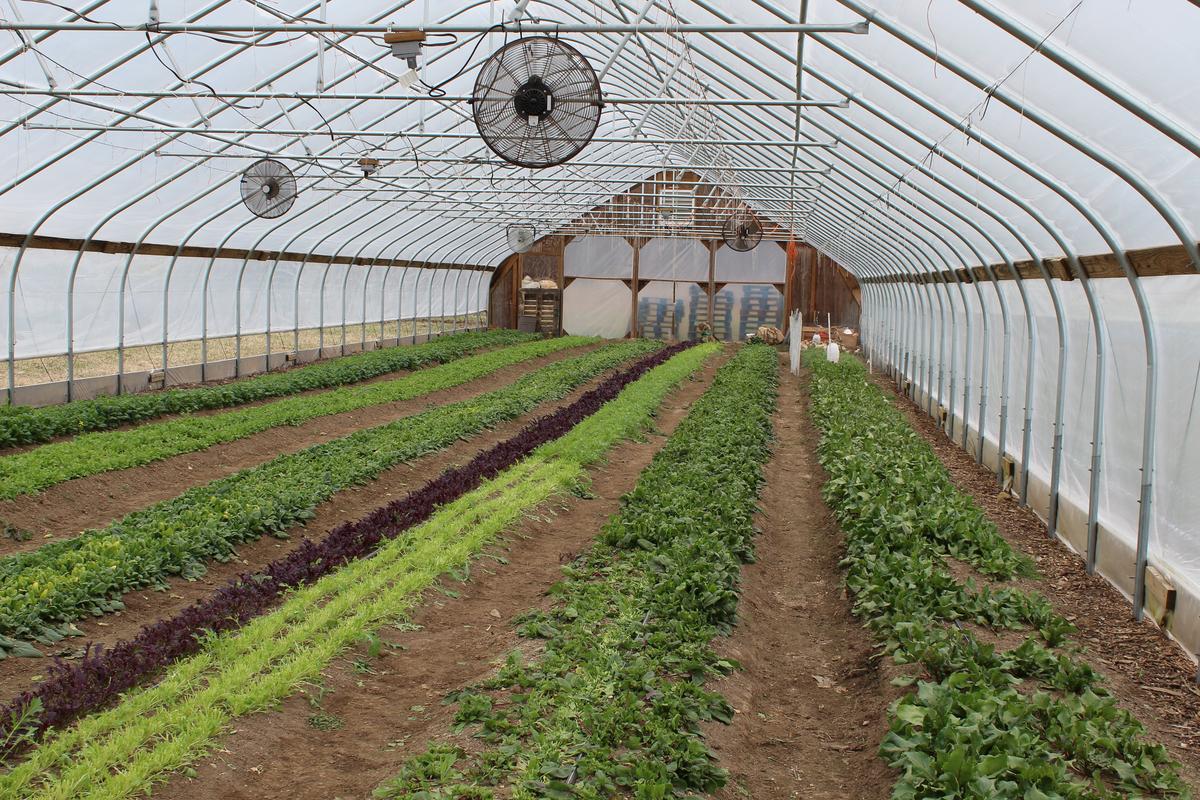
Spinach and other leafy greens are grown inside a hoop house, a structure similar to a greenhouse that enables farmers to extend the growing season in northern climates. Photo by Cassandra Basler for WSHU
We found another place that’s trying to change the way we think about food: Stonington, CT. This historic eastern Connecticut town has always revolved around the ocean.
Now, a 250-year-old farm wants to diversify the food economy in more ways than one. It’s become a hub to learn about what we eat, and value the men, and women, who produce our food. From WSHU, Cassandra Basler reports.
Dr. Seuss’ New England Upbringing
Growing up reading Dr. Seuss books like, well, just about everyone else, I imagined they were written by someone who grew up in a fantastical place, filled with oddly shaped trees and strangely-named animals. But, it turns out Dr. Seuss, born Theodor Geisel, actually grew up in the rather normal town of Springfield, Massachusetts.
A new biography by Brian Jay Jones explores how his New England upbringing and Dartmouth education shaped Geisel’s work. The book is called Becoming Dr. Seuss: Theodor Geisel and the Making of an American Imagination.
Poetry Book Is Your ‘Compass’ to the Pioneer Valley
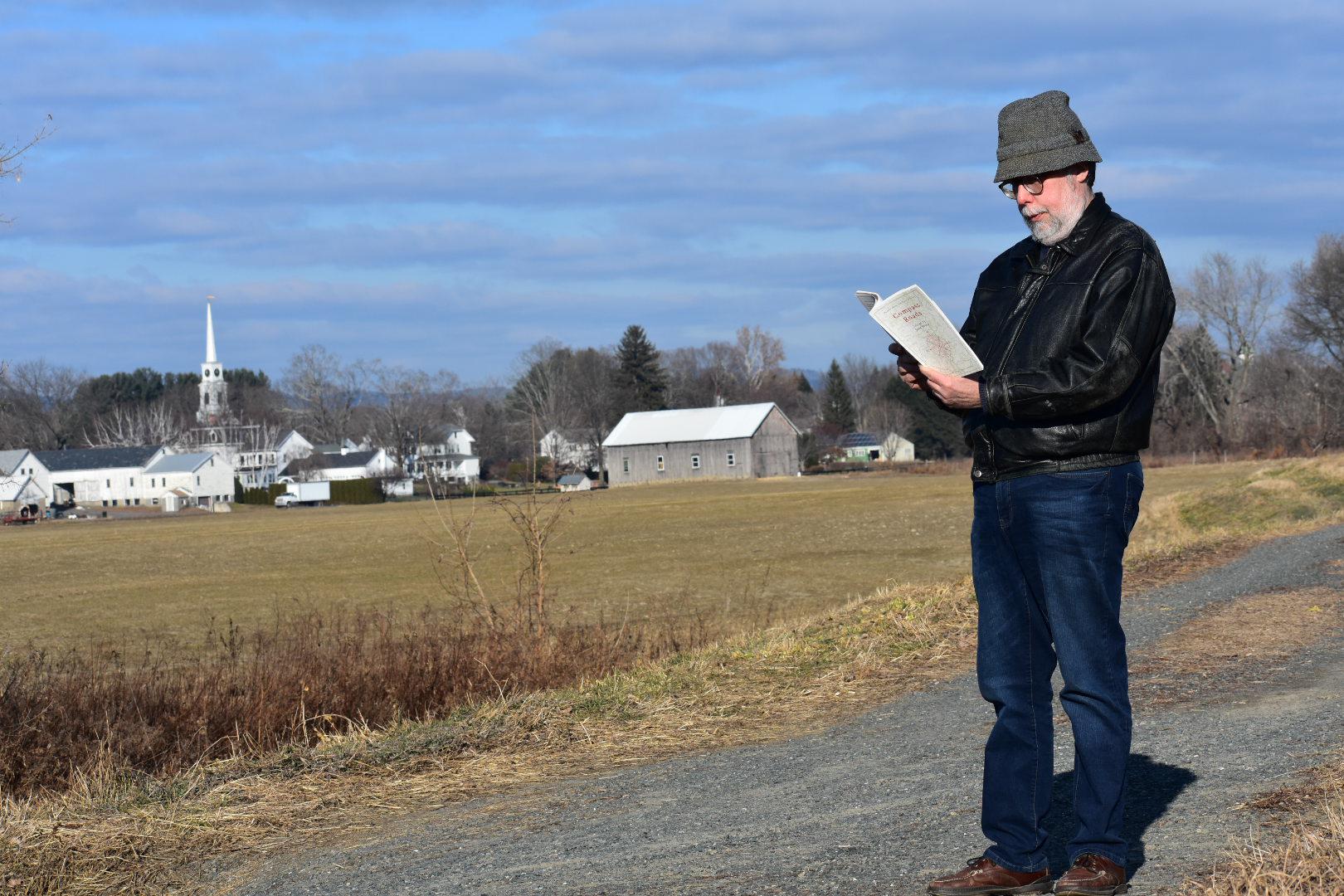
Forrest Proper reads from the anthology “Compass Roads” at an elbow of the Connecticut River in Hatfield, Massachusetts. Photo by Carrie Healy for NEPR
We’re going to finish a few hours west of Boston, in the lush Pioneer Valley. It’s a place that’s easy to get lost in. New England Public Radio’s Carrie Healy introduces us to some poets who have created a book meant to serve as your “compass” to the area.
NEXT is produced at Connecticut Public Radio
Host: John Dankosky
Digital Producer: Carlos Mejia
Executive Producer: Catie Talarski
Contributors to this episode: Annie Ropeik, Sam Evans-Brown, Cassandra Basler, and Carrie Healy
Music: Todd Merrell, “New England” by Goodnight Blue Moon

